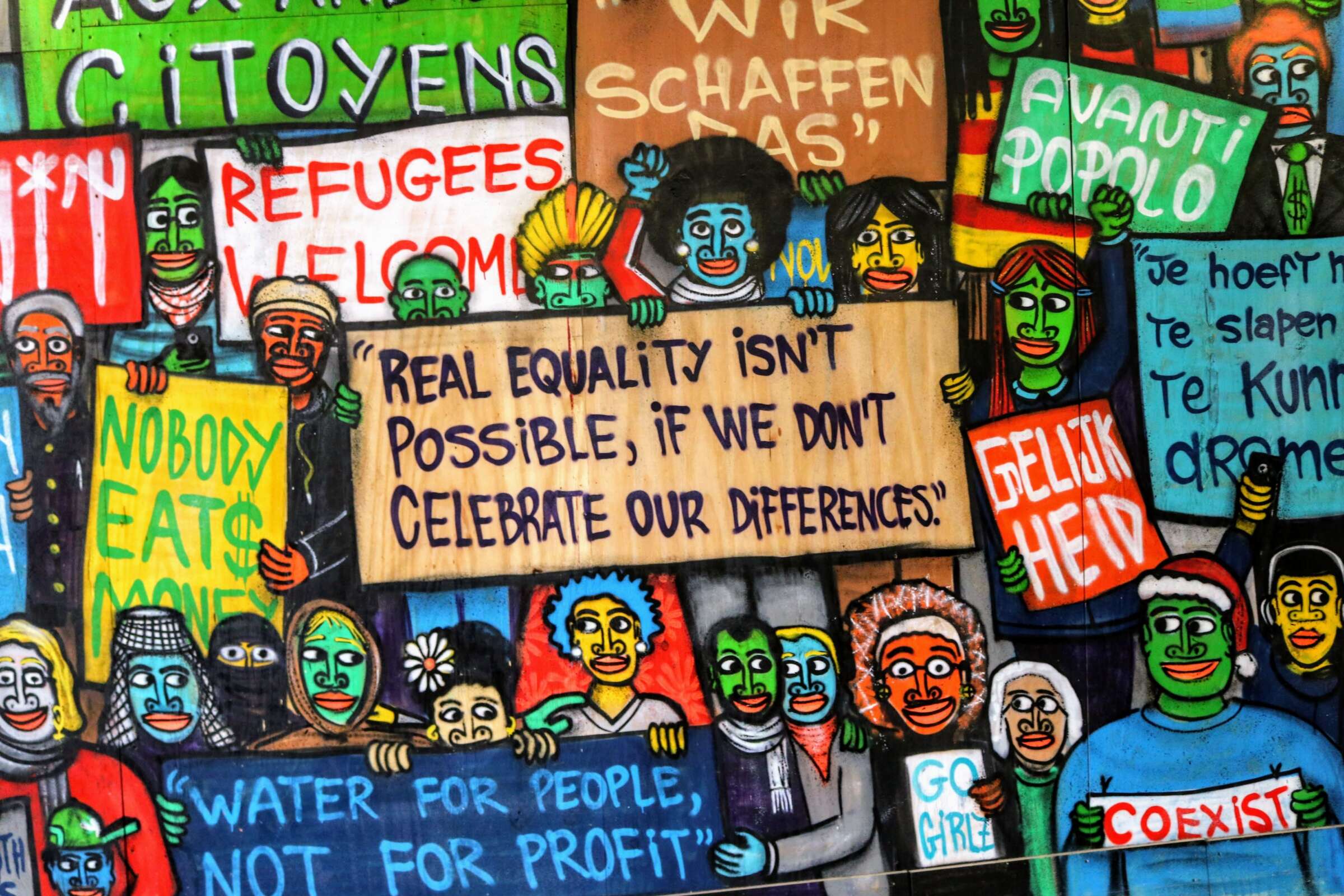Racism
God calls Christians to oppose racism and prejudice of any kind. Over the centuries, Christians have led campaigns to establish rights for groups who have been oppressed because of their race or ethnicity. Christians were at the heart of the drive to abolish slavery, the civil rights movement in the United States and the move to end apartheid in South Africa. More recently, Christians have been prominent in the Black Lives Matter movement. But, to its shame, some parts of the Church have also misused and misinterpreted parts of the Bible to defend the evils of slavery and racism. The teachings and lifestyle of Jesus Christ during his time on earth 2,000 years ago demonstrate these practices are wrong. Jesus showed kindness and acceptance to people of other minority groups. For example, many of the Jewish people of the time hated and shunned the Samaritans, a neighbouring mixed-race ethnic group. But Jesus engaged with them as equals. He even made them the heroes of one of the stories he used to teach his followers: The Good Samaritan. It is true that Jesus refers to slaves in some of his teaching and does not explicitly say slavery is wrong, but in the Bible book, Mark, he says, ‘love your neighbour as yourself…’ Slavery and racism are a clear violation of this principle.
God calls Christians to oppose racism and prejudice of any kind.
Respect for ethnic groups in the Bible
The laws which governed the lives of the Jewish people in the centuries before Jesus are set out in the Old Testament part of the Bible. Three groups of people are singled out for special protection because they were vulnerable: orphans, widows and people of other races who lived in the land. The Bible book, Exodus, says, ‘do not oppress or mistreat a foreigner, for you were foreigners in Egypt…’ Laws were established to let other ethnic groups thrive in situations where they might otherwise suffer. And in the early years of the Christian church in the first century after Jesus’ life, there is teaching about the equality of all people, whatever race, gender or status. The Bible book, Galatians, says, ‘There is neither Jew nor Gentile, neither slave nor free, nor is there male and female, for you are all one in Christ Jesus….’ People of colour were appointed to positions of leadership in those first churches. For instance, among the leaders of the church in Antioch, was Simeon. The Bible book Acts, notes that he had black skin.
Continued below...

Good campaigns and dark failures
Progress is being made towards a Church which reflects the Christian teaching that God made all humanity in his image.
The efforts of Christian figures such as Archbishop Desmond Tutu to end apartheid in South Africa and the Revd Dr Martin Luther King, a Baptist minister, in opposing segregation in the USA, are well documented. Christians such as William Wilberforce led the campaign to abolish slavery in the 19th century. But it cannot be overlooked that there are dark chapters in Christian history where there has been hatred and cruelty by one race against another. In 12th century England a rumour that King Richard had ordered a massacre of Jewish people led to bloodshed by Christians. The Crusades, which began in the 11th century, are part of a shameful legacy of violence against Muslims. The hatred demonstrated by the white supremacist Ku Klux Klan against people of colour in the United States began as a movement apparently endorsing Protestant Christian values. It has since been denounced by every Christian denomination.
Christians now would say the racism exhibited by churches in previous generations was based on ignorance and misunderstanding of the Bible. This was even expressed in art: for hundreds of years Jesus Christ was depicted as a blue-eyed, blond man despite the fact that he was Jewish and had been born in the Middle East. Some Christians would point to more subtle forms of racism which continue, deliberately or unintentionally. Many are frustrated by what some call institutional racism in public bodies such as the Church which has, at times, held back the careers of people of colour. But progress is being made towards a Church which reflects the Christian teaching that God made all humanity in his image.

Harry Potter and Christianity

King Charles III - Faith and beliefs

